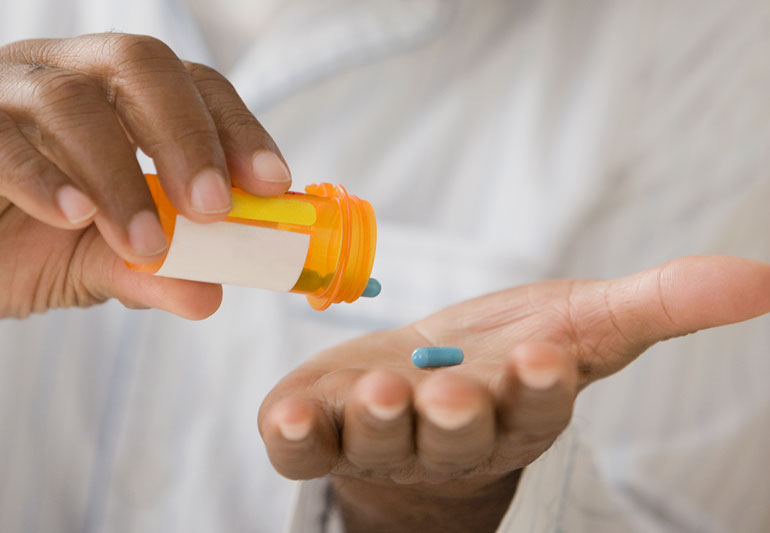

A heart attack is a major life event, one that can have serious repercussions for you and your family in the following days, weeks and months. It requires a new approach to your lifestyle as part of your recovery, but it doesn’t necessarily have to ruin the rest of your life. Complete recovery after a heart attack is possible for some heart-attack survivors, and most can resume a normal or near-normal lifestyle. However, it requires doing everything you can to prevent a second heart attack or developing heart failure.
“Look at a heart attack as an opportunity to refocus on healthy habits and control your risk factors for future cardiovascular disease,” says preventive cardiologist Luke J. Laffin, MD.
Here’s what else Dr. Laffin recommends you do to get back on track.
1. Take your prescriptions
Your doctor will prescribe medications that have proven to save lives after a heart attack. These medications generally include aspirin, an antiplatelet medication, a beta-blocker, a statin and, often, an angiotensin-converting enzyme inhibitor.
Studies have shown that heart attack survivors who don’t fill their prescriptions are far more likely to die within a year than those who take their medications as prescribed.
“Taking these medications can reduce the chance of a second heart attack by 25% or more,” says Dr. Laffin.
Because these medications are necessary, you should not stop taking them without your doctor’s permission. “Stopping them can increase your risk of a subsequent heart attack,” he says.
2. Start cardiac rehabilitation
After a heart attack, it’s natural to wonder how much exercise is safe, or whether it’s safe at all. That’s why it’s a good idea to enroll in a medically supervised cardiac rehabilitation program within four weeks of leaving the hospital. Participating in cardiac rehabilitation can increase your chance of surviving three years or more by almost 50%.
Cardiac rehabilitation programs tailor exercise to each participant’s condition and abilities. In addition, the programs include discussions about heart-healthy foods and eating habits and the psychological issues of coping with serious heart disease. Both of these elements are important for a healthier, happier future.
3. Work on your weight
Perhaps your diet or weight was part of what caused you to develop type 2 diabetes, obesity or hypertension—major risk factors for heart disease. If so, your heart attack may have been a wake-up call to reform your eating habits.
A heart-healthy diet eliminates trans fats, limits intake of saturated fats and sodium and emphasizes natural foods that are high in fiber, such as fruits, vegetables and whole grains. You may need to practice portion control, as well.
If you are overwhelmed by the thought of making drastic changes to your diet, consult a registered dietitian. The dietitian will take your favorite foods into account when designing a diet just for you.
4. Quit smoking
If you smoke, now is the time to quit. Smoking is the worst thing you can do to your heart. Cutting back doesn’t work: Smoking only one cigarette a day increases the risk of heart attack by 50% in men and 75% in women.
Secondhand smoke is unsafe, as well. Heart-attack survivors are 61% more likely to have a second heart attack or angina within 30 days when exposed to secondhand smoke.
And, no, electronic cigarettes are not safe substitutes for tobacco cigarettes. They are less toxic, but vaping increases blood pressure and oxidative stress while aggravating endothelial dysfunction, the process that leads to atherosclerosis. In addition, many e-cigarettes contain harmful additives, such as pesticides and heavy metals.
5. Mind your mental health
Depression after a heart attack is common and can shorten your life. Don’t try to tough it out.
“If you lose interest in people or activities you previously enjoyed, this may be a sign that you should seek help from a medical professional,” Dr. Laffin advises. Speaking with your healthcare provider and adding an antidepressant may be all it takes to make you feel better.
6. Surround yourself with support
You survived “the big one,” so why not celebrate life? Feel free to resume a social life as soon as you have the energy to do so. You’ll find that participating in activities you enjoy with friends you cherish will give you a renewed sense of optimism and a sunnier outlook on life.
7. Resume sexual activity
There’s no reason to avoid sexual activity after a heart attack, enjoying the intimacy that is an integral part of a loving relationship. Heart attack survivors who have an active sex life are less likely than celibate survivors to die in the decades following their first heart attack.
“I tell my patients that it’s safe to have sex with your regular partner when you can walk up two flights of stairs without stopping to catch your breath,” says Dr. Laffin. “Just respect your limits and stop if you feel lightheaded.”
8. Look ahead, not behind
Suffering a heart attack may shake you to your core, but it also can renew your enthusiasm for life. Think of the saying, “What doesn’t kill you can make you stronger.” Surround yourself with people who will help you become a healthier, happier person than you were before.
“Eat better, exercise, quit smoking, take your medications and enjoy your life. These simple things may reward you with better health than you had before your heart attack,” says Dr. Laffin.
more recommended stories
 Nutrient Optimization: Vitamin D for Health
Nutrient Optimization: Vitamin D for HealthResearchers addressed the prevalence of vitamin.
 DASH Diet Reduces Cardiovascular Disease Risk in Breast Cancer Survivors
DASH Diet Reduces Cardiovascular Disease Risk in Breast Cancer SurvivorsA recent publication in JNCI Cancer.
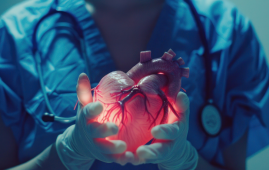 Heart Failure Treatment Advancements
Heart Failure Treatment AdvancementsIn a recent report published in.
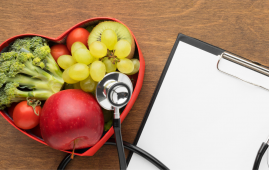 Hypertension Risk: Mediterranean Diet Study
Hypertension Risk: Mediterranean Diet StudyResearchers evaluated the long-term effects of.
 AI-driven Neural Implants: Innovations and Ethics
AI-driven Neural Implants: Innovations and EthicsResearchers conducted multiple focus group sessions.
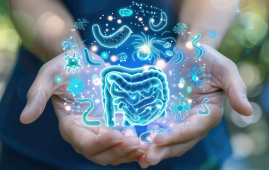 Psychobiotics and Microbial Therapies for Mental Health
Psychobiotics and Microbial Therapies for Mental HealthResearchers examined the use of psychobiotics.
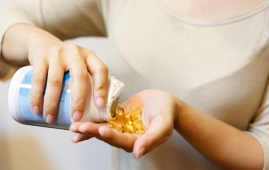 Female Reproductive Health: Role of Minerals
Female Reproductive Health: Role of MineralsAustrian researchers have published a review.
 ChatGPT Accuracy and Health Information Risks
ChatGPT Accuracy and Health Information RisksAccording to a groundbreaking study on.
 Maternal Stress Linked to Atopic Dermatitis Risk in Children
Maternal Stress Linked to Atopic Dermatitis Risk in ChildrenAccording to a study published in.
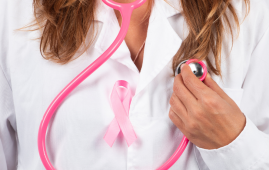 Breast Cancer Survivors: Challenges and Growth
Breast Cancer Survivors: Challenges and GrowthBreast cancer survivors deal with a.

Leave a Comment